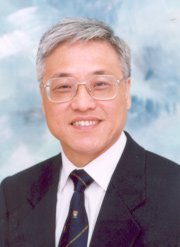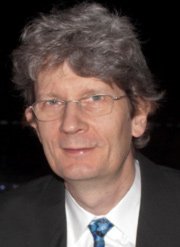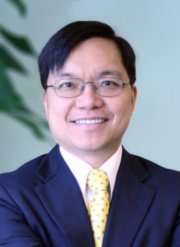Portraits of Knowledge Exchange
As a researcher, I find great satisfaction when our findings result in a product or practice that resolves a pain or difficulty in people's lives or an existing problem in industry; when our research influences policy development for the benefit of society; when we contribute to solving problems for an NGO or practitioners; when we bring arts and cultural enrichment to the community; and when we enhance the knowledge of the general public.
The Ongoing Quest to Share HKU's Knowledge with Society

"Knowledge exchange", or KE, is a phrase that has become an increasingly frequent topic of conversation with my colleagues at HKU, alongside the usual discussions about the University's research strategies and developments, our children's education and our hobbies. I'm pleased to see colleagues want to know more about the possibilities of contributing to society through their academic work and about the implications that KE has for them. And it's good to see that more and more colleagues realize this is not a new thing. In fact, HKU has been engaging in KE work for many years, although without the KE banner to identify it as such.
KE is all about sharing our expertise and the knowledge we create to enhance the material, human, social, cultural and environmental well-being of our society. This is a two-way process that can involve industry, business, the public sector, non-governmental organizations, professional societies and the general public. It encompasses not only technology transfer but all disciplines, including arts, humanities and social sciences.
Much has been said about the benefits to society of KE, including in the articles you will read in this newsletter. But it should also be remembered that KE can maximize the impact of our academic work. Research output traditionally has been measured in terms of the impacts it has on the academic community through research publications, journal editorships, academic conferences, etc. KE enables us to also consider the impacts of our research on society, the economy and our quality of life. The partnerships that characterize KE can also lead us to discover unmet needs and new ideas for future research.
Furthermore, KE can inform our teaching and learning by providing real-life examples that we can share with our students. This ensures that students are learning the most relevant skills and knowledge, and how they can be applied.
As a researcher, I find great satisfaction when our findings result in a product or practice that resolves a pain or difficulty in people's lives or an existing problem in industry; when our research influences policy development for the benefit of society; when we contribute to solving problems for an NGO or practitioners; when we bring arts and cultural enrichment to the community; and when we enhance the knowledge of the general public.
The University also values the contributions of KE and the possibilities it offers to enrich our academic work. A KE Executive Group has been set up comprising Professor John Malpas, Professor John Bacon-Shone, Professor Paul Cheung and myself to oversee strategic developments in KE, while all Faculties have set up their own KE units. The focus on KE policies, infrastructure and supporting initiatives will help to create an enabling environment for further developing our KE work.
The stories presented in this newsletter demonstrate the breadth of HKU's KE activities and showcase the impacts our faculty members have made on the wider community. They also show that our colleagues have undertaken KE with a heartfelt commitment.
Professor Paul K H Tam
Pro-Vice-Chancellor (Research) & Director, Knowledge Exchange Office
Embedding KE at all Levels

KE is a vital part of the University's activities alongside teaching & learning and research. It is explicitly recognized in HKU's Strategic Development Plan 2009-2014 that it has positive implications at both the Faculty and individual staff levels.
In the near future KE will be included as a measure of a Faculty's success in the budgetary process and those that respond effectively to the increased strategic importance of KE will be rewarded. Similarly, those colleagues who have the passion to make use of their expertise and knowledge to benefit the wider community will have their work in KE and their contributions beyond academia recognized in the staffing process. While KE will not be a requirement for all academic staff, a separate weighting of KE in the main portfolios of professoriate staff, together with core and Faculty-specific criteria for personnel events such as promotion, will be developed after consultation with the Faculties.
Together these measures help to demonstrate the University's deep commitment to not only achieving KE, but embedding it in our culture. It is now a core element of our work.
Professor John Malpas
Pro-Vice-Chancellor (Infrastructure)
Contributions Come From All Disciplines

KE encompasses a lot of different activities. It is perhaps most visible in traditional technology transfer or commercialization, and yet our academics in non-technology-related disciplines also make important contributions to society. Their work has had impacts on practitioner practice, culture, the environment and the development of research-informed public policies, among many other areas.
An essential component of all our KE work is community engagement. Community engagement is now incorporated into every Faculty, resulting in stronger partnerships with business, the public sector, NGOs and community groups. These connections can lead to innovative KE initiatives that benefit the partners involved, including the University, and even the general public.
Whatever the specific form, HKU always aims to take part in KE that is rooted in research excellence, involves high quality engagement and makes a significant impact beyond academia. The stories shared by the nine recipients of the Faculty KE Awards 2011 in this newsletter are strong examples of our goals.
Professor John Bacon-Shone
Associate Director, Knowledge Exchange Office
Technology Transfer: A Bridge from Research to Real-world Application

It is widely recognized that innovation is crucial to the future economic growth of not only Hong Kong but also Mainland China. Universities, as the knowledge base of society, play a significant role in generating innovations through research, but in order to get these innovations to real-world application, they need to engage in technology transfer. Technology transfer therefore is one of the major components of KE.
The process of turning research outcomes into a sustainable commercial application is very challenging – it requires a lot of time, effort and, most importantly, commitment from the researchers. The University put in place infrastructure to support technology transfer in 2006, even before the University Grants Committee's advocacy of KE from 2009. Two units are responsible for this work: the Technology Transfer Office, which provides technology transfer-related services to academic colleagues, and Versitech, a wholly-owned enterprise of HKU which handles commercialization and business arrangements with industry.
Our technology transfer function is underpinned by the goal of seeing our researchers' work have a real and positive impact on society – a drug that saves lives, a solution that works for industry, a product that improves the quality of life, etc. We are also thinking of the future and are striving to nurture an entrepreneurial spirit among our postgraduate students so that they, and HKU, can continue to make beneficial contributions to our community.
Professor Paul Cheung
Director, Technology Transfer Office & Associate Director, Knowledge Exchange Office


